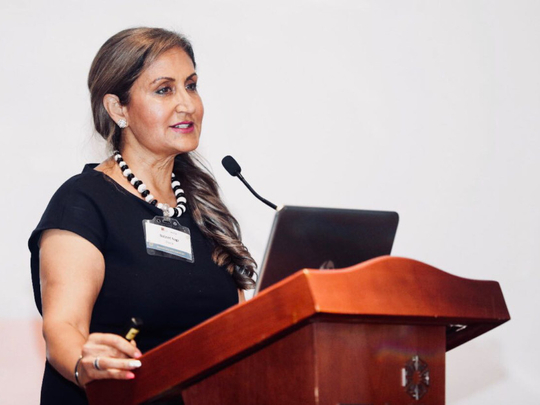
DUBAI
New pressures mean businesses face the perfect storm in their supply chains, and traditional methods cannot keep up.
That’s what Professor Christopher Abraham, CEO and Head of SP Jain School of Global Management’s Dubai campus told attendees at the school’s Supply Chain Conclave in his opening address on Wednesday.
Abraham identified factors such as globalisation, complex products and their development cycles, diminishing natural resources, mass customisation and the pace of business change as new pressures on supply chains.
Coping with new complexities required moving from linear supply models to circular ones, he added, using digitisation and new technologies such as the internet of things and artificial intelligence to create intelligent digital supply chains.
Keynote speaker Baljeet Nagi, Director of Enterprise Resource Planning (ERP) and Supply Chain Management (SCM) Sales Development and Strategy at Oracle in Dubai, warned of the perils of failure to adapt, pointing to the likes of Borders, Blockbuster and Radio Shack in the US.
Small firms and large corporates invest in supply chain innovation, whereas medium firms tend to invest in efficiency, Dr Rajiv Aserkar, Head of Logistics and Supply Chain at SP Jain, said, presenting the results of a survey of firms in the Middle East, Europe, India and Australia.
But small and large firms differ in their reasons for innovation, he added — while small firms innovate for growth, large firms innovate to protect their market share.
Forty five per cent of the firms Aserkar surveyed had no digital strategy. A quarter had a disigtal strategy, but no digital governance. Only 30 per cent had a digital strategy with clear governance.
Furthermore, while there was little consistency over responsible for digital supply chains among firms, those who assign responsibility to the Chief Executive Officer, Chief Information Officer or Chief Strategy Officer tend to perform better.
And those firms they refreshed their digital strategies more frequently — as often as annually — also tended to perform better than those that refreshed more infrequently.
“This is a turbulent journey,” Aserkar said. “You are going to face problems with technology. It’s going to change. The political environment is changing, the economic environment is changing. With each change, you have to change.”












